Librarian's Bookshelf
May 9, 2024
Books about confronting reality.
by Greta Twombley, Head Librarian
2016 was the first year I was ever threatened as a public librarian. I am not sure exactly how the interaction began but a concerned mother came into the library and asked if we had the Harry Potter books and when I said we did, she became very upset. She said she had read on Facebook that the Harry Potter books promoted witchcraft. Up until that moment, it had never occurred to me that something as fantastical, as otherworldly as Harry Potter could be considered dangerous. I had enjoyed reading them as both a reader and a librarian but it never occurred to me that they were anything other than what they were: a story.
But this mother was very upset and threatened to have me suspended from the library, those were her words, which was also not a concept I had been familiar with. Months later, it happened again, over an Alison Bechdel graphic novel, then another a few months after that. All of these complaints stemmed from posts library visitors had read on the internet about the danger of certain books.
That same year, Donald Trump was elected in the midst of what has now been documented as a targeted misinformation campaign by foreign actors. It was the first time in my life as a person and librarian where the unreality of the internet had had such profound implications for this country.
Eight years later it seems this question of reality is at the center of conflict that involves each and every one of us, all leading to the upcoming election. The question now seems to be whether with enough power or money or access to technology can someone rewrite the truth, rewrite history, to force a profound unreality into reality. Perhaps this is what powerful people have always done and now we are all waking up to the fact. Or perhaps this person is different because even in spite of all the evidence, he is threatening to do the same thing again.
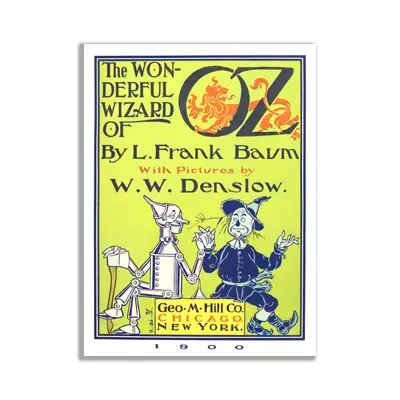
The Wonderful Wizard of Oz by L. Frank Baum
In this one-of-kind landmark exploration of children's fantasy and American myth, protagonist Dororthy Gale dreams of escaping her dreary small town life and finding adventure in a magical, ever-changing world of kindness and danger. Featuring one of the most exquisitely-detailed cast of characters, from the Wicked Witch of the East to the Cowardly Lion, the first in Baum's Oz series holds secret answers and wonders for both young readers and adults alike.
Violet,
Before I become invisible once and for all, I remembered something odd which I wanted to share with you and which I hope you will now find helpful. In the 1980s, after I left the Navy, I worked at a company called Harmony Entertainment and met a brilliant software engineer who also came from Question Mark, Ohio. We were working on something called the HarmonaVision. This person tried to convince me that Time moves in a spiral and that the future was already all around us and time travel was scientifically possible. This person said there were openings in Time somewhere in Question Mark which could be used to change the past. Something about this gave me an incredible feeling of hope.
During my experiments in the Navy I had lost my time and place in the universe and so I returned to Question Mark in order to become the person I once was. It did not happen but what I did find was a sense that anything is possible, good and bad, and people are kinder and more interesting than I had previously given them credit for. I learned that all the problems in the cosmos begin and end with our relationships with all these complicated people around us.
Unfortunately I cannot remember anything about this person’s face, who they were, or their name. Like my hands, like the rest of my body, my memories have all begun to vanish. But I now believe this person holds the answer to all the disappearances in town.
I know you can figure this all out. I wish you luck.
Tanner
In order to stop myself from reading updates from The Washington Post into the wee hours, I have been reading Freddie The Wonderful Wizard of Oz by L. Frank Baum. Freddie seems to enjoy it but I have to say I believe I am enjoying it even more. Written in 1900 as a children’s fantasy, the book has some startlingly beautiful things to say about how we must often leave home in order to find it, and that magic is often created by the people we choose to bring into our lives. In the end, I believe Dorothy’s decision to return to Kansas may have less to do with returning to the world of her childhood and more to do with her rejecting a powerful but false realm of fantasy, illusion, and unreality.
Before everything in town disappeared this weekend, a young person came in and asked if we had Truman Capote’s The Grass Harp, another favorite of mine from when I was in grade school, and I showed them where it was on the shelf, and the young person asked if they could read it here, at the library, and I said, of course, and they said they liked to read books around other people because it made the book feel “more real.” It struck me that this is what seems to have disappeared over these last eight years—this acknowledgement that real reality, not the illusory world of the internet and social media, is what so many of us are truly longing for.
All of these accumulated moments over the last year have forced me to come to some difficult decisions as both a person, a parent, and a small town librarian. I have been living here since my husband Bill disappeared more than a year ago in a theater of unreality. I have been able to pretend that, one day, if I only wait long enough he will return even though I know in my bones that this is not true. I realize now in order to go on living and growing as a person, I have to be willing to choose a reality that is oftentimes disappointing, awkward, boring, and painful, and this involves me leaving the town I dearly love.
In June, Freddie and I will be joining my sister in Chicago, the very place where L. Frank Baum first created Oz. To me, that city still seems like a wonderful, beautiful, frightening place of unique possibilities, or as Chicago writer Nelson Algren described it: “never a city so real.” Freddie and I are looking forward to immersing ourselves in a city that prides itself on its reluctance to hold any illusions. I’ve found a job at one of the most wonderful libraries in the world, The Newberry, and I am looking forward to the adventures that soon await us.
It has been one of my greatest joys to be your head librarian.
February 9, 2024
Books about the fascinating connection between the historical and the personal.
by Greta Twombley, Head Librarian
Everyday it feels like history is finding its way into our personal lives. As we approach the Ohioan Republican Primary on March 19 and move toward another contentious election, it’s hard not to feel that the events we’ve been encountering in our town and state and country are nothing short of life-changing and oftentimes are momentous.
And we’d be completely correct in feeling that way. After confronting a global pandemic, an insurrection at the Capitol, and the series of ever-disturbing events in town–from disappearances, to mass unconsciousness, to a fire and a flood–no wonder many of us feel history keeps intruding upon our lives.
And then there is my amazing daughter, Freddie, who is now, inexplicably, four months old, and who also has the very odd habit of disappearing for long stretches at a time. Where does she go when she disappears? Or maybe a better question is when? Once she came back with an odd piece of very old fabric. Another time she reappeared holding a very old pocket watch which was inscribed with the initials R.W. And then just yesterday, she came back holding a very strange leaf. We have gone through several babysitters this month already. I have a feeling that Freddie, like many of us, is having trouble negotiating the past, present, and future all at once.
I also recognize Freddie and I need to try to face all these challenges moment by moment, day by day, and that literature can give us a wider perspective as we examine our difficult relationship to time. Reading about how history informs our own lives can be extremely empowering. This month I’m recommending two very different books that I love.
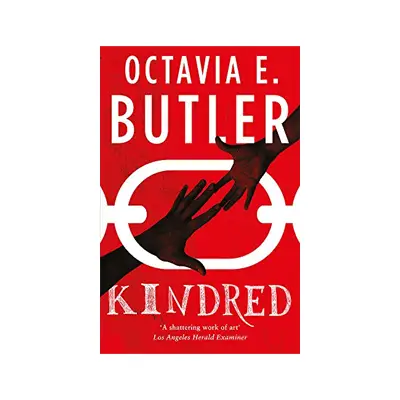
Kindred by Octavia Butler
A young woman living in Los Angeles discovers her complicated relationship to her identity and the past in this incredible novel from 1979. Butler uses science fiction and magical realism to explore the complex history of the United States in this innovative classic.
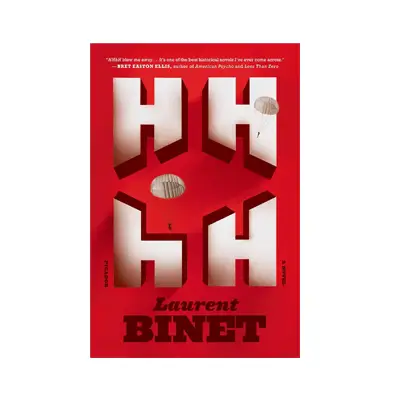
HHhH by Laurent Binet
In this postmodern nonfiction/hybrid work, two young men must confront their fate when they are enlisted to assassinate high-ranking Nazi official Heinrich Heydrich during the Second World War. Binet interrupts a suspense-filled tale with his own interjections about sacrifice and shifting European mythology.
Both these books are imaginative and engaging and remind me how often we must confront historical questions alongside our very own personal challenges. We hope you explore both and we hope to see you at the library soon.
December 10, 2023
Books about birth and motherhood.
by Greta Twombley, Head Librarian
I want to begin by saying thank you for the kind words and wishes on the birth of our daughter Winifred William Twombley. Your notes made me feel very supported and if Bill were here he would say the same. Thanks too to Hilda Durn for organizing the meal train. I’ve neglected many things since Freddie arrived and eating was one of them until the casseroles started appearing at the front door. I washed all the pans and stacked them on the porch; feel free to swing by and claim yours.
I miss the Question Mark Public Library very much but I’m very grateful for everyone’s book recommendations about early motherhood. My friend Violet comes by after school to hold Freddie for a half hour so I can answer work emails, but most days I read instead because even the idea of my inbox is upsetting. There’s so much happening at the library right now and I know Gerald needs help, but if I’m being very honest, I want to throw my laptop off the roof. Some days I want to throw myself off the roof. I know that is a very dark image but I’m told it’s not uncommon for new mothers and I don’t think we should be silent about such things. We’re silent about so many things and what good has it done? My doctor says it will get better if I sleep but whenever I shut my eyes I get hit with a tidal wave so instead I read about babies. The words blend together, language in blocks instead of lines, but I keep going. I repeat the same paragraph for what feels like a lifetime and then look at the clock and it’s only been a moment. I’m not sure anymore what is time. My daughter is two months old. It feels as if tomorrow she will be twenty-four—like I was when I first met Bill—and then she’ll be in her nineties at the end of her life and I am here on the edge of mine. I need to make it to the end of the day. The end of the week. The end of the sentence.
Some titles that have been helpful are The Mother to Mother Postpartum Depression Support Book by Sandra Poulin; Healthy Sleep Habits, Happy Child, by Marc Weissbluth, MD; and You Will Rock as a Dad by Alex Grace which someone sent to Bill while he was still here. I’ve been reading it in case there are things in the father books that aren’t in the mother books and I’ll have to cover that stuff, too. There’s so much to cover. There’s so much information. There’s so much to miss. There’s so much crying, in the world and my head and my house with this tiny perfect person so hungry and alive and gloriously here. She looks so much like her dad. Sometimes it’s too much. Sometimes I put the video monitor in my bathrobe pocket, go out the front door past the piles of casserole pans, out into the yard, barefoot and ice-toed in Midwest December, and I howl at the moon. I know that sounds strange, but it’s the only time that I really feel like myself. There are so many books about mothering—I’d argue that every book ever written is about motherhood; how we were nurtured or not, how we try and fail to love, to care, to teach, to grow—but the one that makes the most sense is a novel by Rachel Yoder called Nightbitch where the mother turns into a dog every night. She grows hair on the back of her neck. She can smell everything. She craves raw meat. If the whole point of literature is to make us feel less alone, this book is the truest thing I’ve ever read.
It's a hell of a time to be a mother. I want to stick my fists in the dirt and pull the world up by its roots.
Lifetimes full of libraries and we can’t be better than this?
This morning there were seven emails from Gerald about a bomb threat at the library. My first thought was to go in and help with the evacuation but I didn’t have anyone to stay with Freddie—my sister lives two hours away in Columbus and Violet was not answering her phone. I considered strapping her into the baby backpack and taking her with me, but you can’t take a newborn into an active threat area. It hit me then: This is motherhood. Decisions like this will be my whole life. If something happens to me, what happens to my little girl? How can I continue such a dangerous job? You’d think I was talking about a war zone, not a library, but today’s is the fourth bomb threat this month. People follow Gerald and I around when we’re trying to work, filming us on iPhones, posting our faces on awful websites, threatening our families, leaving notes at the front desk saying things I won’t repeat. I wonder what these people read. I wonder how they learn about the world. I wonder what they think will happen when they call in those threats. Today Gus Holst suggested we stop using rainbow graphics in our advertisements for the kid’s reading area. He told me that rainbows are making people angry right now. I told him that books make people angry. Ideas make people angry. Angry enough to kill.
How am I supposed to parent in all of this? Last night, when Freddie was asleep and I was out in the yard in my bathrobe with the moon, I pulled the monitor out of my pocket to check on her and she wasn’t there. On the screen there was an empty crib. Her little blanket was there. The stuffed bunny Violet gave her was there, too, but no baby. My body turned inside out. I felt the inexplicable strength mothers get when they lift buses off their babies. I ran barefoot to the house, through the door and down the hall, my pulse a jackhammer. I made the wrong person mad, I knew. I kept books on the shelves that they wanted off the shelves and I let people read those books and the ideas in those books were dangerous and I would pay for them with my daughter. But when I got to her room, there she was in the crib, fast asleep, an angel. I looked at the monitor in my hand: she was there, too. On the screen and in her bed. I put my hand on her little chest. I felt her breathe. I watched my hand rise and fall, rise and fall, back and forth between the real baby and the image of the baby, the real and the reflection. I thought of the movie she’s named after: The Lady Vanishes. Bill and I watched it a thousand times. Alfred Hitchcock adapted from a 1936 mystery novel called The Wheel Spins by Ethel Lina White and it should surprise no one that I prefer the book, but Bill loved Alfred Hitchcock so much so I keep watching it, night after night after Freddie goes to sleep and I howl at the moon. In both versions, the character of Winnifred disappears. She is there one minute and gone the next, but in the end she comes back for good, “having enjoyed her adventure.”
This is what I want for my daughter.
This is what I want for all of us.
September 19, 2023
Books about uncertainty and disillusionment.
It is my good fortune to talk every day with members of our community of Question Mark. I try to make book suggestions based on what people are thinking about and experiencing. Sometimes that means books that connect to what’s happening in the news or the weather, like in 2019 when the snowstorm hit, we read The Man Who Caught the Storm, or when the shipping train full of honeybees crashed, we read Honeybee Democracy by Thomas D. Seeley.
Lately, because of what’s been happening in town, I've been recommending books about disappearances. But this week I’ve had many conversations about how difficult these disappearances are. I’ve been feeling that way myself as many of you know.
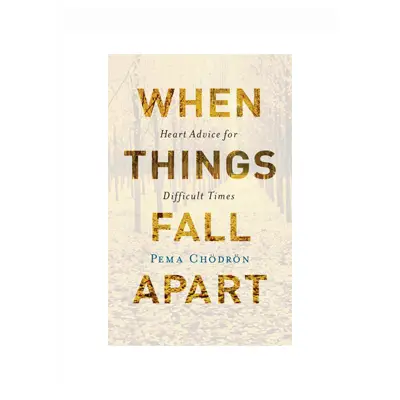
When Things Fall Apart: Heart Advice for Difficult Times by Pema Chödrön
Pema Chödrön is a Buddhist nun and in this book she tries to answer one question: how can we go on living when things fall apart? Her answer is that we should stop running from suffering and try to approach it with curiosity.
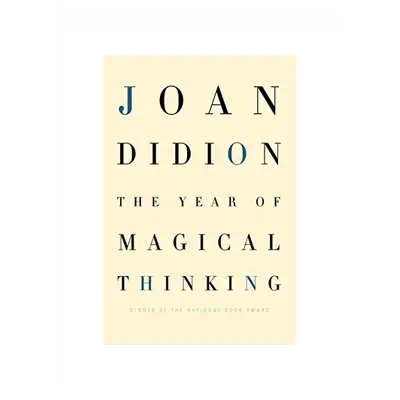
The Year of Magical Thinking by Joan Didion
The Year of Magical Thinking is a memoir about grief. The writer’s husband, John, suffered a sudden and fatal heart attack while their daughter was on life support. The book follows Didion’s for the next year as she cares for her daughter and wrestles with death and memory. She ties in medical and psychological research on grief, specifically that if a person hopes hard enough, then maybe bad things won’t happen.
As some of you may be aware, on Thursday nights we now host community support groups at the library. I am pleased to offer our space for such discussions. Last week, for the first time, I myself attended. I miss my husband Bill very much. I especially wish he was here now, during the second trimester. I spent the first fourteen weeks very scared for this baby because of the miscarriages I had before, and Bill was never able to experience how happy pregnancy can be. He didn’t see how happy I could be; without the panic every second that something might go wrong.
I’m not sure how to explain this next part: even in the moments when I can’t feel the baby, when I think it might be hiding behind my stomach or pancreas or something, or maybe not even there at all, like poof! in and out of my body like that lady on Bewitched, it doesn’t seem wrong. The baby isn't gone, or lost. I just wait a little while 'til they come back. I read aloud to us and we pretend like Bill’s still here, like he just stepped out of the room to get me a snack or a blanket. I’m not sure if that’s healthy. I’m not sure what’s healthy any more. Our group leader told us how good it is to talk about these things, so here I am.
August 30, 2023
Books about disappearances, ordinary and extraordinary.
As we continue to ponder the disappearances going on all around us, it is once again my profound pleasure to offer several books regarding ordinary and extraordinary disappearances.
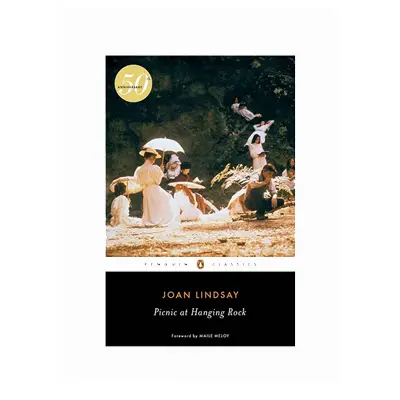
Picnic at Hanging Rock by Joan Lindsay
On a summer day in 1900, a group of girls at the Appleyard College for Young Ladies explore the strange landscape surrounding a volcano and soon disappear.
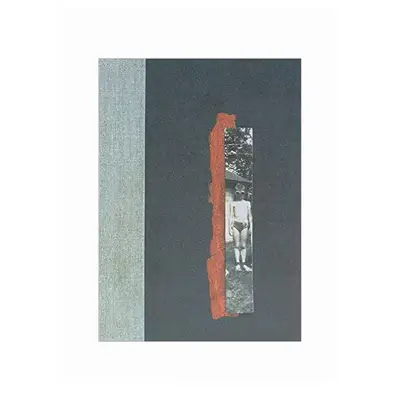
Nox by Anne Carson
Nox is a gorgeous, facsimile of a handmade book by Anne Carson, surrounding the dramatic disappearance and death of her brother, which includes letters, sketches, and several black and white photographs.
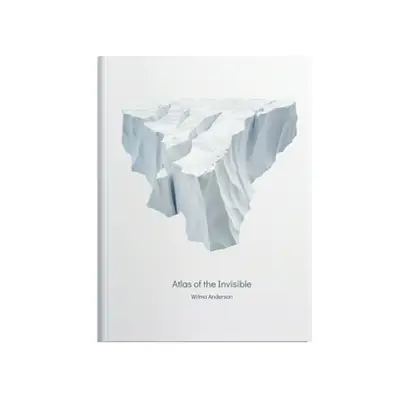
Atlas of the Invisible by Wilma Anderson
A woman sets out across Antarctica in search of her missing husband, a scientist who believes he has discovered the source of all life on Earth.
As head librarian I, myself, have been pondering the nature of disappearance, beyond the unsettling vanishings that have happened around town. I find myself six months pregnant without my lovely husband, Bill, and my baby, either mischievous or mysterious, seems to keep appearing and disappearing on me. Sometimes I can feel them kick as if wanting to immediately get out. Sometimes I wake up in the middle of the night and am sure they are no longer there. I have never been pregnant before. No, that is not true. I have been pregnant twice before and both ended in miscarriage. I know some people are not comfortable speaking about these things, but it is important for other women and other people to know just how common this is. I have never been pregnant this long before and each new day makes me feel a little more and more worried and perhaps the baby can sense this and decides to hide to make me feel less anxious?
I have been trying to stay busy at the library writing lists for the Librarian’s Bookshelf and lists of baby names but I have decided to wait until this baby arrives before making any decisions. Violet Bookman, one of my favorite library patrons, came by the other day and said she liked the names Flannery or Eudora and when I mentioned them to the baby later, it once again seemed to disappear.
May 15, 2023
Books on loss and longing through other, unfamiliar worlds.
Take a powerful journey toward confronting disappointment and grief in these compelling and beautifully-written literary titles that offer us a glimpse of the sublime and fantastical.
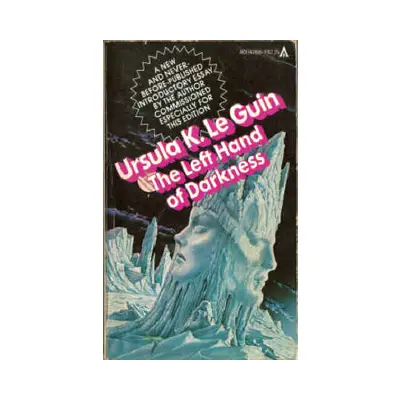
The Left Hand of Darkness by Ursula K. Le Guin
One of the most groundbreaking and celebrated works of science fiction, this novel explores a lone human ambassador who travels to a frozen planet named Winter and encounters a world where the citizens' gender can change.
2-12-6 19-26-5-22 7-12 24-12-13-5-18-13-24-22 17-6-15-18-26 7-12 8-7-12-11 7-19-22 7-22-8-7. 2-12-6 19-26-5-22 7-12 7-22-15-15 19-22-9 7-12 15-22-7 20-12.
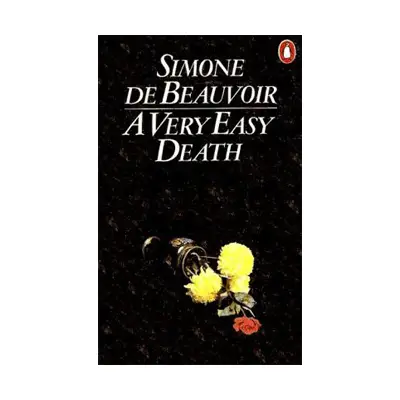
A Very Easy Death by Simone De Beauvoir
This short book is widely considered to be one of De Beauvoir's most accessible and striking literary feats. Set in France, this work of nonfiction recounts De Beauvoir's mother's death and is told in vivid, striking prose.
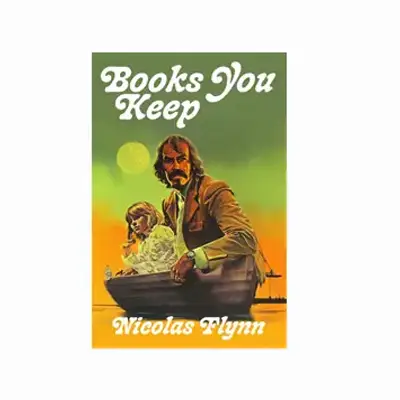
Books You Keep by Nicolas Flynn
After a terrible virus leaves most of the world's population in an endless sleep, a young woman travels with her father across America on a floating barge, collecting first editions of famous books in order to preserve humanity's wisdom and history.

Lincoln in the Bardo by George Saunders
Set largely in a magical cemetery after the death of Abraham Lincoln’s young son, Saunders’ operatic exploration of grief involves a chorus of hundreds of departed souls.
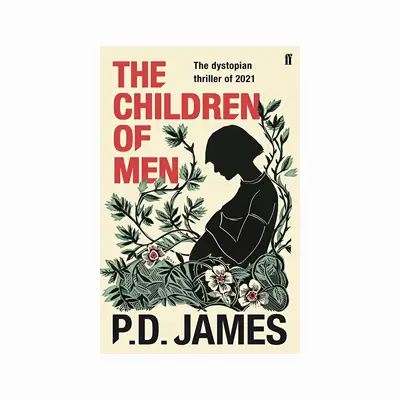
The Children of Men by P.D. James
Set in England in 2021, this sci-fi novel explores a world of mass infertility and a group of revolutionaries who refuse to become disillusioned. In a maddening post-apocalypse, realism enlivens, giving no answers, nor temerity.